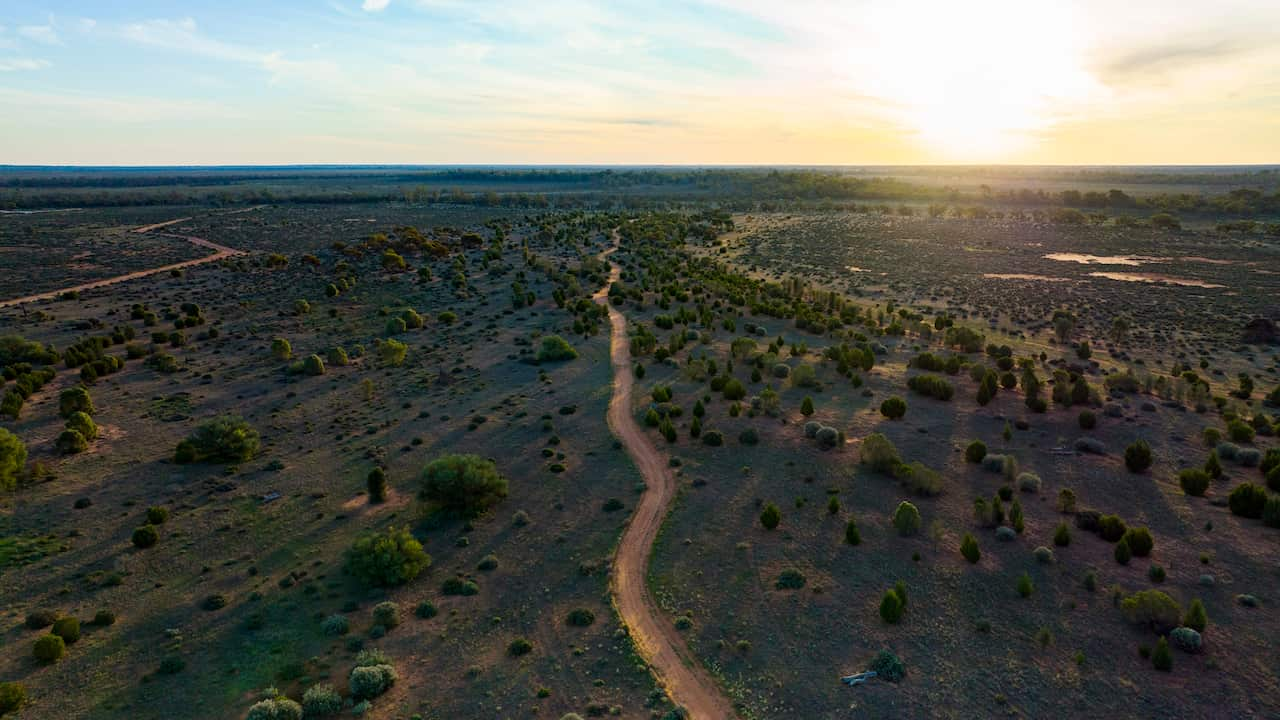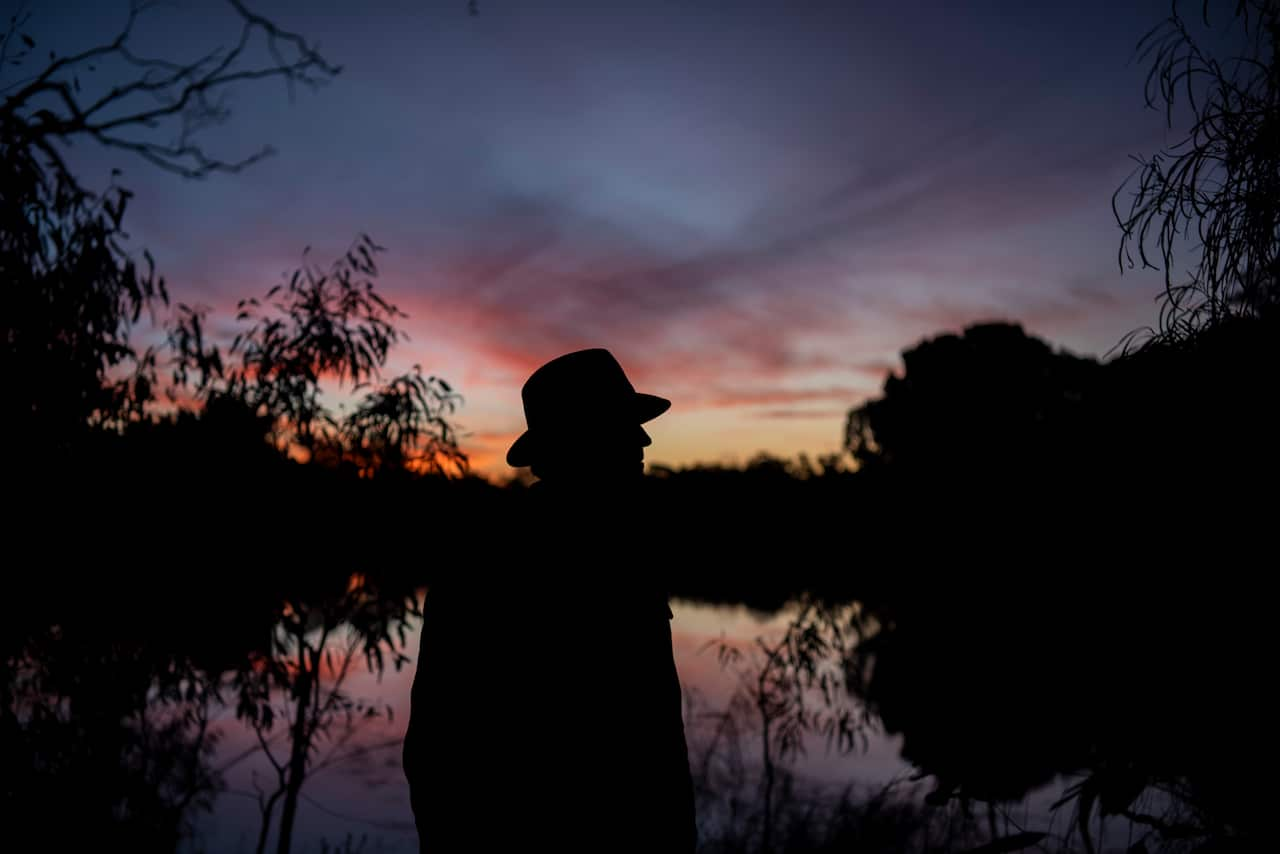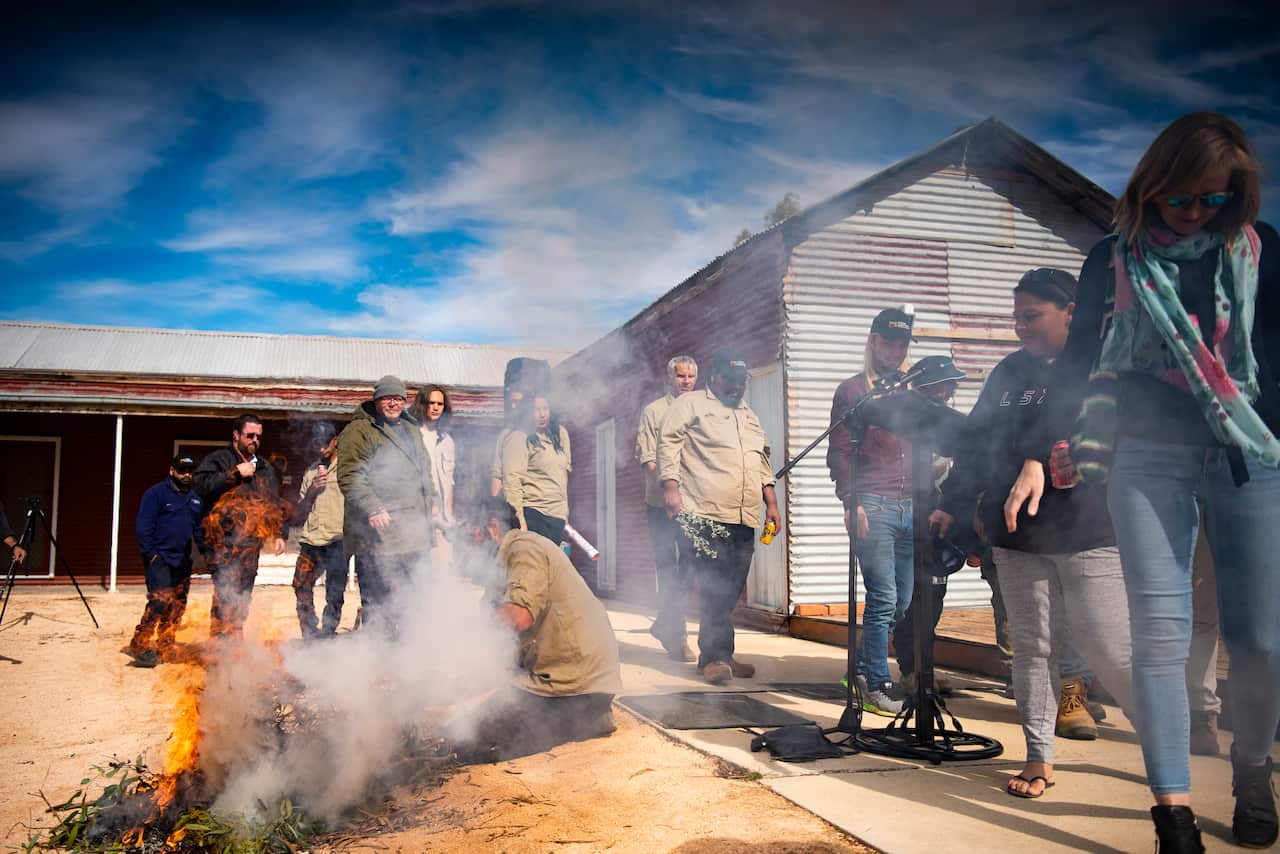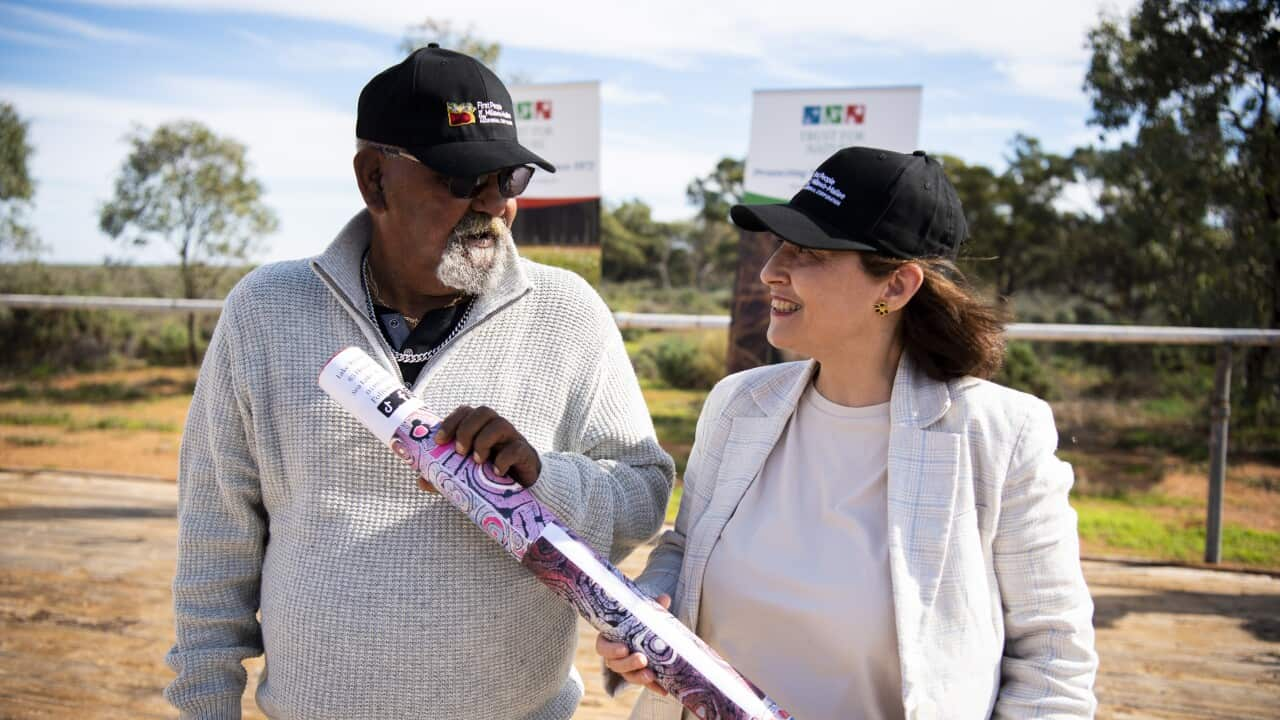After 155 years of private ownership, 'Ned's Corner' Station has been handed back to Ngintait Traditional Owners.
The property will be managed by the First People of Millewa Mallee Aboriginal Corporation (FPMMAC).
FPMMAC Chair and respected Ngintait Elder Norman Wilson, also known as Uncle Tinawin said,
"The hand-back of our traditional lands is a historic occasion for our people.
"Our lands were stolen, and our people killed, but we are still here today.
"Having our land back will allow us to restore our cultural practices, and care for the land and river properly.”

Ned's Corner. Source: Annette Ruzicka
Rehabilitation, preservation
It's believed Ngintait People lived on the land now known as Ned's Corner for 13,000 years before it became private agricultural property.
In 2002, Trust for Nature, a Victorian organisation that acquire private properties for ongoing conservation and protection, assumed ownership of Ned's Corner.
For the last two decades, it has been under the care of full-time property managers, Peter and Colleen Barnes. The Barnes worked to strip the property of livestock and agricultural infrastructure and restored native vegetation and wildlife.
In recent years, Traditional Owners have been working in partnership with Trust for Nature to map and protect significant cultural heritage sites in the area.

Ned's Corner at Sunset. Source: Annette Ruzicka
'Self-determination'
The land transfer will be finalised in February 2024, giving Traditional Owners and relevant stakeholders an opportunity to develop funding and management models.
During that time, Trust for Nature will continue conservation efforts on the property.

Smoking ceremony at transfer ceremony at Ned's Corner. Source: Annette Ruzicka
Victorian Minister for Energy, Environment and Climate Change Lily D’Ambrosio said the handback is a step toward self-determination.
“Through self-determination, The First People of the Millewa Mallee Aboriginal Corporation will manage Ned’s Corner and continue to rejuvenate the land and help protect our threatened species in Northern Victoria," she said.



